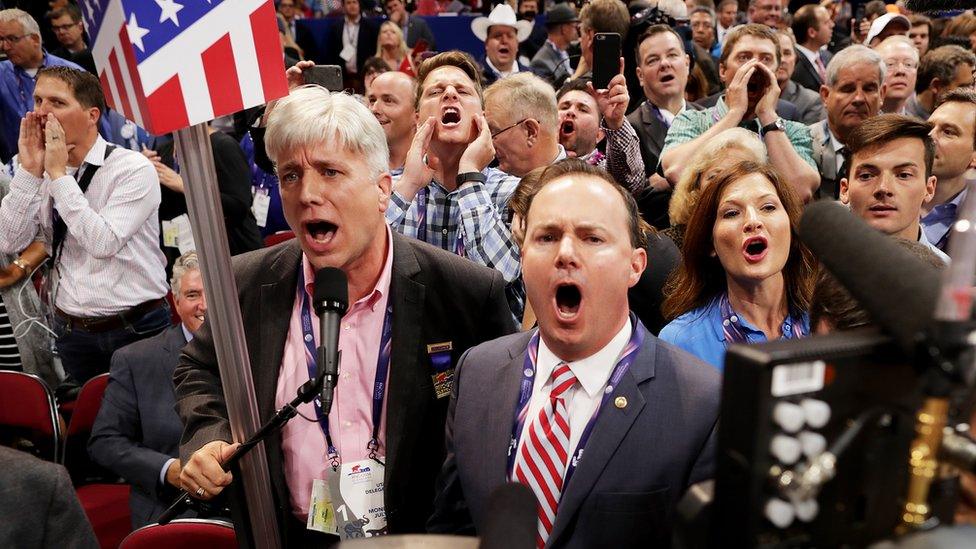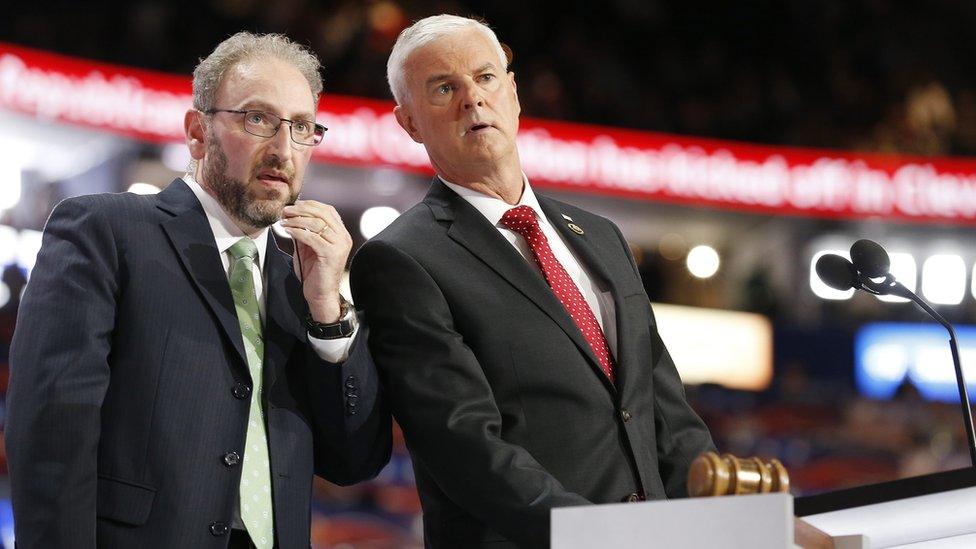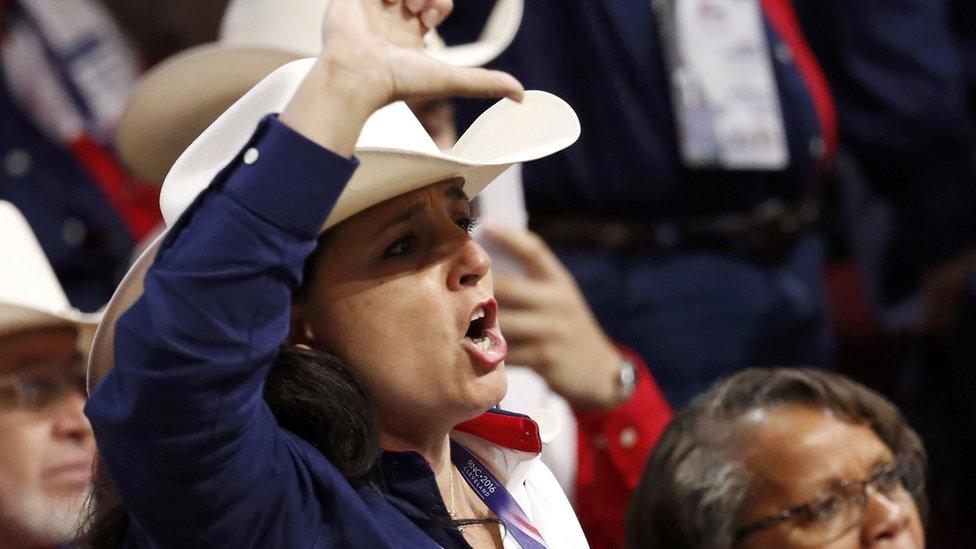Republican Party unity frays as convention opens
- Published

Senator Mike Lee (centre) and the Utah delegation shout against a voice vote during the first day of the convention
It may have been a last gasp. It may have been a death rattle. But the #NeverTrump forces demonstrated on Monday afternoon that there was still some life left in them.
Thanks to a bit of procedural nimbleness, the anti-Trump delegates temporarily ground proceedings at the 2016 Republican convention to a halt.
They did it by gathering petitions from nine states to request a formal roll call vote on adopting the rules that govern the convention. Those rules included a provision requiring delegates to stand by their pledge to support the candidate selected by their state's primary or caucus process. With that particular rule in effect, Mr Trump easily would have the necessary number of delegates to win the nomination on Tuesday.
That set off a furious round of lobbying from pro-Trump forces to convince three delegations to reverse themselves, dropping the petitioning states below the seven necessary under party rules.
An attempt to simply gavel the rules adopted by acclimation led to a chorus of boos and an angry denunciation from Mike Lee, a senator from Utah.
"There's no precedent for this in parliamentary procedure," he said. "We are now in uncharted territory."

Congressman Steve Womack (right) found himself in charge during a chaotic few minutes
Some members of the delegations, arranged by state on the floor of the convention, shouted "roll call vote". Others tried to silence those objections with chants of "USA! USA!"
After the minutes dragged on with an empty stage and a live band in the corner playing rock cover tunes, convention deputy chair Steve Womack re-emerged and attempted to hold another voice vote on the rules. The crowd erupted in yays and nays, boos and cheers.
Then, after the head of the Utah delegation was allowed to formally request a recorded vote, then Mr Womack announced that three states had, in fact, been persuaded to change their minds.
More boos showered down on the stage, but the gavel sounded and the band eventually kicked back in, drowning out the angry catcalls. The Iowa and Colorado delegations, two of the petitioning states won by former presidential candidate Ted Cruz, left the convention floor in protest.
Ken Cuccinelli, a Virginia politician who had been an active Cruz supporter during earlier pre-convention meetings, dramatically threw his delegate badge on the floor and stormed out, external.
After the afternoon proceedings, delegates reacted to what had just taken place.
"It was the Republican National Committee stealing power to override delegates and vote it in for themselves," said Marilyn Weaver, a Cruz delegate from Scurry, Texas. "We want the people to have more say, not the establishment making the decisions."

Many of those calling for a roll call vote were delegates pledged to Ted Cruz
Her husband, Jimmy Weaver, chairman of the Kaufman County Republican Party, agreed - and added that Mr Trump is not always what he seems.
"I think that Trump is more a part of the system than most people know," he said. "I think he's hoodwinked America in what he's done."
Cecil Stinemetz, an Iowa delegate, said he no longer wanted to be part of the Republican Party.
"This is what you do if you want to be a Democrat," he said. "Go over there with Hillary Clinton and these kind of tactics. We're supposed to stand for open voting."
Meanwhile, other delegates insisted that the Republicans in Cleveland should look at the big picture.
"We want this party to be unified," said Barbara Webb of Benton, Arkansas. "I know that was a difficult time for some Republicans, but I hope they understand that the decision is going to be between Trump and Hillary [Clinton]."
While it's clear that the eventual adoption of the pro-Trump rules was never really in doubt, a roll-call vote would have been an embarrassing show of dissent from the delegates - something Trump's team wanted to avoid at all costs.
Despite their best efforts, however, cracks in the Republican foundation were quite visible at the start of a week in which the party is desperate to put its best foot forward.